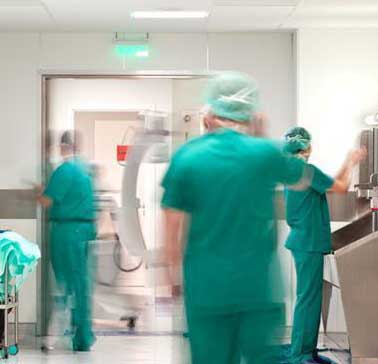24 Apr, 2016/ by National Accident Helpline /Legal Blog, News
Alarming statistics on patient care emerged this week as a report published by kidney disease experts and Insight Health Economics found that up to 40,000 hospital patients die annually as a result of a failure to diagnose acute kidney injury (AKI).
Shockingly, the figure is significantly higher than mortality rates from hospital superbugs such as MRSA and costs the NHS more than breast, lung and bowel cancer combined, the report, commissioned by NHS Improving Quality, found.

Acute kidney injury, known as the ‘silent killer', since it often goes unnoticed by medical staff, can develop very quickly, particularly in those already ill with infections, heart disease or diabetes, and rapidly causes loss of kidney function which can be catastrophic. One of the main causes of the condition is severe dehydration which, the report's authors argue, should be prevented by basic standards of medical care.
This latest revelation comes just less than a year after the National Institute for Health and Clinical Excellence (NICE), the NHS watchdog, was forced to issue guidelines on giving patients sufficient water to stay hydrated. NICE's guidelines highlighted how vulnerable patients are when left on wards without fluids and how they can deteriorate so rapidly that they lack the strength to request a drink.
However, despite such research and advice, the issue is still prevalent in the NHS, leading to thousands of unnecessary patient deaths.
At National Accident Helpline (NAH), we believe that the research highlights the importance of a duty of candour within the NHS.
The Health Secretary's announcement of the introduction of the ‘Sign up to Safety' campaign, which will ensure NHS healthcare organisations publish plans to reduce avoidable harm. The initiative, which aims to tackle the root cause of the problem, should help identify unsafe care and develop solutions to solve it. Hunt's announcement signifies a major advancement in patient's rights and safety and is a welcome move to those patients who have been failed by the NHS. The research released this week once again emphasises the necessity for such changes.
It demonstrates that more needs to be done to ensure avoidable deaths are prevented. While the efficiency drive in the NHS has placed significant strain on staffing and resources, patients must be able to feel confident that they are receiving the best possible care while in hospital, in particular elderly patients, who are often those most seriously affected by hospital-acquired conditions such as acute kidney injury. Good quality care is a fundamental right for patients in the NHS and families should feel confident that their relatives will be well taken care of.
In the first instance, hospital staff must be educated about the warning signs of acute kidney injury and the simple steps that can be taken to ensure a patient is sufficiently hydrated. Likewise, hard-pressed medical staff, the vast majority of whom are determined to care for their patients with compassion and respect, must be allowed to devote sufficient time to hands-on patient care. In addition to the vast benefit this can bring in helping to save lives, there is also a serious financial gain; it is estimated that the current problem is costing up to £1 billion a year, resources which could be better spent elsewhere.
If this widespread negligence is not tackled head-on then needless deaths will persist and confidence in the NHS will suffer. It is essential that hands-on patient care is at the centre of the NHS so that this dangerous trend does not continue.